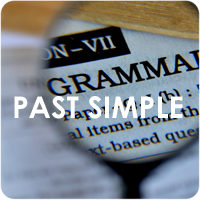Het arrangement 7.1 Leisure time - tto123 is gemaakt met Wikiwijs van Kennisnet. Wikiwijs is hét onderwijsplatform waar je leermiddelen zoekt, maakt en deelt.
- Auteur
- Laatst gewijzigd
- 11-05-2025 18:07:00
- Licentie
-
Dit lesmateriaal is gepubliceerd onder de Creative Commons Naamsvermelding-GelijkDelen 4.0 Internationale licentie. Dit houdt in dat je onder de voorwaarde van naamsvermelding en publicatie onder dezelfde licentie vrij bent om:
- het werk te delen - te kopiëren, te verspreiden en door te geven via elk medium of bestandsformaat
- het werk te bewerken - te remixen, te veranderen en afgeleide werken te maken
- voor alle doeleinden, inclusief commerciële doeleinden.
Meer informatie over de CC Naamsvermelding-GelijkDelen 4.0 Internationale licentie.
Aanvullende informatie over dit lesmateriaal
Van dit lesmateriaal is de volgende aanvullende informatie beschikbaar:
- Toelichting
- Deze les valt onder de arrangeerbare leerlijn van de Stercollectie voor Engels voor tweetalig onderwijs, leerjaar 1, 2 en 3. Dit is thema 7 'Hobbies and sports'. Het onderwerp van deze les is: Free time. De les gaat over wat iemand doet in de vrije tijd. De grammaticaopdracht is een grammaticatoets dat gaat over de past simple van regelmatige werkwoorden en vraagwoorden.
- Leerniveau
- VWO 2; HAVO 1; VWO 1; HAVO 3; VWO 3; HAVO 2;
- Leerinhoud en doelen
- Engels;
- Eindgebruiker
- leerling/student
- Moeilijkheidsgraad
- gemiddeld
- Studiebelasting
- 1 uur 40 minuten
- Trefwoorden
- arrangeerbaar, engels, hobbies, leisure time, past simple, regelmatige werkwoorden, stercollectie, tto123, vraagwoorden, vrije tijd
Gebruikte Wikiwijs Arrangementen
VO-content Engels. (2020).
1.2 Preferences - tto123
VO-content Engels. (2023).
7.1 Free time - hv12

 The subject of this period is leisure.
The subject of this period is leisure.

 Melissa’s hobbies
Melissa’s hobbies Study the vocabulary. (10 minutes)
Study the vocabulary. (10 minutes)
 You are going to take a grammar test.
You are going to take a grammar test.


 An essay about leisure time
An essay about leisure time What have you learnt in this double period?
What have you learnt in this double period?
